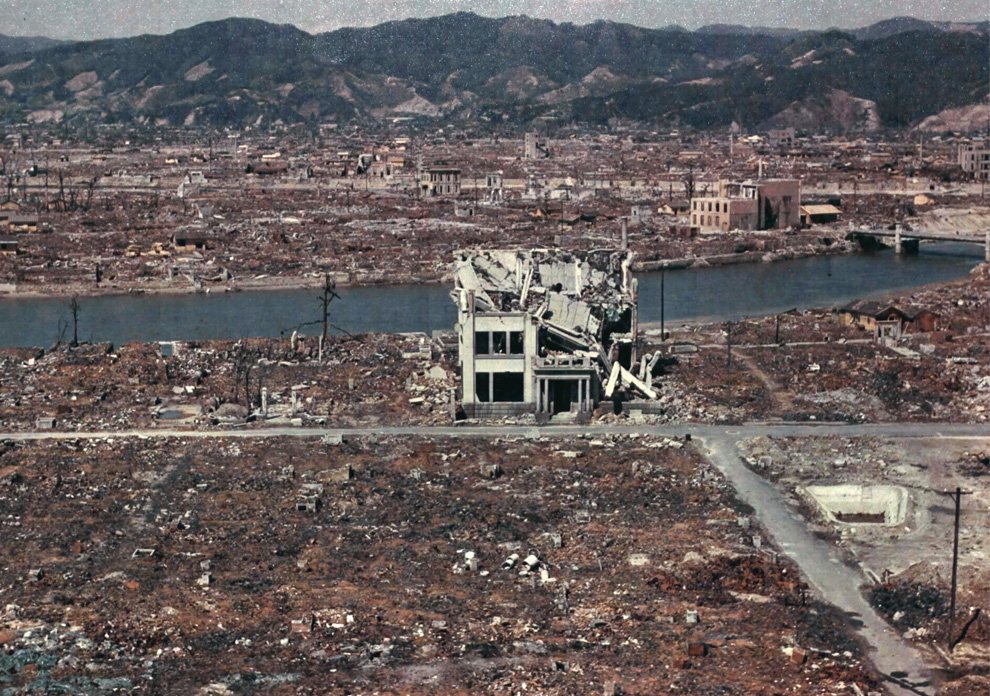Students will read a variety of perspectives on the moral implications of the bomb and engage in an organized debate on the topic.
Materials:
Excerpts from the Manhattan Project anthology that present opposing views of the bomb. These include:
- The official release by Secretary of War Henry Stimson after the bomb of Hiroshima on August 6, 1945
- The introduction of the Smyth Report that states "the ultimate responsibility for our nation’s policy rests on its citizens and they can discharge such responsibilities wisely only if they are informed"
- An excerpt from John Hersey’s Hiroshima, which was printed in the New Yorker magazine on August 6, 1946, the first anniversary of the bomb's use
- Henry Stimson’s response in an article in February 1947, printed in Harper's magazine
- Barton Bernstein’s critique that "History is often not what actually happened"
- Patrick Blackett’s "Fear, War and the Bomb"
- Paul Fussell’s "Thank God for the Atom Bomb"
Assignment:
Pre-debate
- Explain to the students that the development and use of the atomic bomb are controversial and that the debate will probably never end. During the lesson, students will learn about the events leading up to the development of the atomic bomb and debate whether it was a positive or negative scientific endeavor, taking into account its historical context.
- Divide students into two teams. Have one team take the position that the development of the atomic bomb was a worthwhile pursuit. This side will argue that the work was important and led to necessary and positive outcomes. The other side will argue that the problems that have resulted from the development of the atomic bomb outweigh the advantages. Make sure that students think about the historical context of the time, including the fear of the Germans developing the weapon, the ongoing war, and the nature of scientific discovery. One good resource for this is J. Robert Oppenheimer's speech to the Los Alamos, NM scientists (available here). A useful passage of the speech is transcribed here:
- "It is not possible to be a scientist unless you believe that it is good to learn. It is not good to be a scientist, and it is not possible, unless you think that it is of the highest value to share your knowledge, to share it with anyone who is interested. It is not possible to be a scientist unless you believe that the knowledge of the world, and the power which this gives, is a thing which is of intrinsic value to humanity, and that you are using it to help in the spread of knowledge, and are willing to take the consequences." (J. Robert Oppenheimer)
Preliminary question:
- What does Oppenheimer mean when he refers to scientists' belief systems?
Debate
Give students time in class to prepare for the debate. As they gather information, ask them to consider the following questions.
- What science was involved in the development of the atomic bomb? (Scientists had to learn how to split the nucleus of an atom by using uranium, one of the heaviest elements in nature. They bombarded its nucleus with a neutron, bringing in a chain reaction that released great amounts of energy.)
- Name some of the scientists involved in creating the atomic bomb. (Examples include: Niels Bohr, Enrico Fermi, Otto Frisch, James Franck, J. Robert Oppenheimer and Edward Teller.)
- How did the scientists feel about the creating the bomb? (Some were ambivalent and later signed a petition to try to convince policymakers not to use the bomb. Others supported the scientific effort from beginning to end.)
- What are some positive effects of the development of nuclear energy? (Nuclear energy is a clean and reliable source of energy and is used to diagnose and treat cancer.)
- What are the overall effects of the development of the atomic bomb? (The development of the atomic bomb brought in a weapon with unprecedented destructive force. It also incited a desire in other nations—especially the Soviet Union—to run their own nuclear development programs.)
After students have completed their research for the debate, have each team write an opening argument and prepare to challenge opposing arguments. Discuss the outcome of the debate. Did one team win? If so, why? What made its arguments more compelling?





